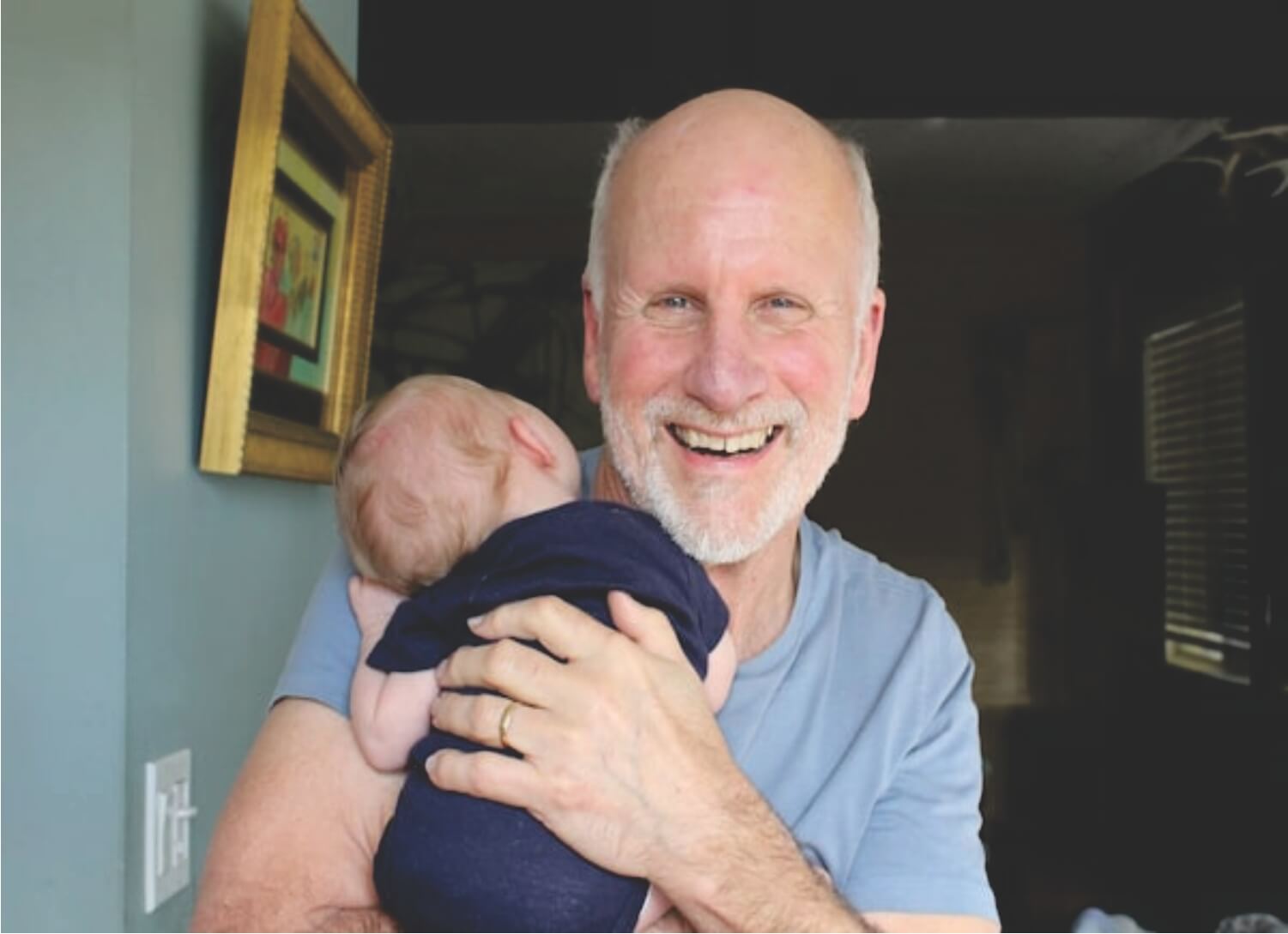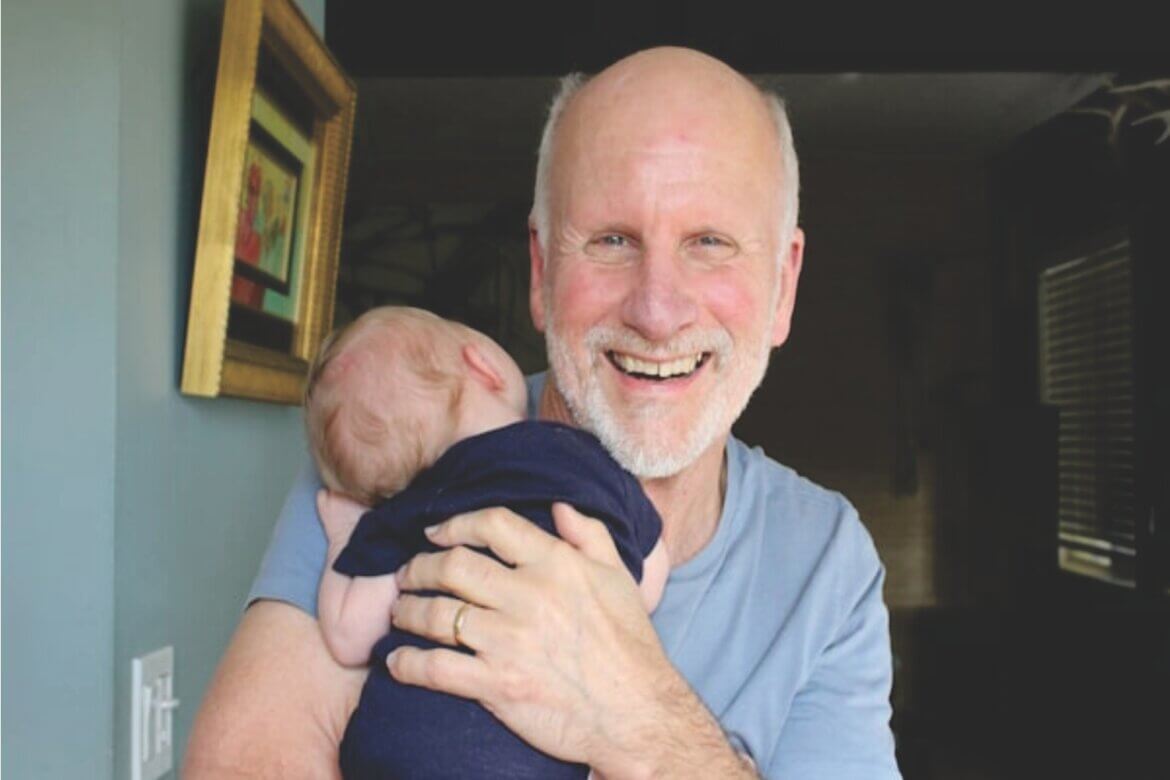Tony Clarke ’caused glorious trouble’ While Protesting Corporate Greed
Gloria Galloway
Volume 40 Issue 1,2,&3 | Posted: April 25, 2025

INTRODUCTION
By Patrick Jamieson
Although barely mentioned in this story, Dr. Tony Clarke and Bishop Remi De Roo formed a potent one-two punch in challenging the Canadian economic and political establishment throughout the 1970s and 80s, culminating in the famous New Years Statement of 1983 Ethical Reflections on the Crisis of the Economy.
This was the result of a buildup of strongly focused social justice statements by the Social Affairs Commission of the Canadian Conference of Catholic Bishops, based in Ottawa where Dr. Clarke was chief staff person and Bishop De Roo was its chair for a decade.
Building upon the Roman Catholic Church’s social teaching, the documents of the Second Vatican Council and the Gospel preferential option for the Poor, arising out of prophetic liberation theology which emerged after Vatican Council (1962-65), the Canadian Catholic Church utilized the teaching encyclical of Pope John Paul II, particularly Laborems Exercens to challenge the neoliberal status quo by putting people before profits.
Social groups including labour unions, other churches, particularly the United Church of Canada and various movements of civil society such as farmers unions and cooperatives formed an ongoing alliance of penetrating social consequence in an effort to tip the balance of society in the direction of fairness for ordinary citizens and the downtrodden. It was a period of extraordinary hope and consequences which brought about the predictable backlash including the firing of Dr. Clarke by reactionary forces within the church and efforts at discrediting of Bishop De Roo, which only showed how effective they had been at discomforting the ruling elites of Canadian society.
I remember bumping into Tony in a coffee shop in Winnipeg when he was on the initial speaking tour for the New Years statement, when I was visiting family in Manitoba. I had been let go from the Prairie Messenger (see story “Muenster, Saskatchewan, Peter Novecosky and The Prairie Messenger” in the Other Feature tab) for being too political, so was overjoyed at the vindication implied and the direction taken by the bishops. The direction of prophetic social teaching.
Tony had been the leading light at many Catholic social justice analysis sessions where he outlined so convincingly the problems created by the emerging late stage of national security capitalism that we are experiencing today with the triumphalism implicit in the second term of Donald Trump globally.
Tony Clarke spent his life fighting corporate wrongdoing and government policies that enable companies to profit at the expense of ordinary people.
Those issues prompted him to become a key player in opposing continent-wide free trade, and then a leader in social justice issues including climate-change mitigation.
In 1992, Mr. Clarke and fellow activists infiltrated the Parliament Hill ceremony where Brian Mulroney was signing the North American Free Trade Agreement (NAFTA). Mr. Clarke rose from the audience as the event was underway and, pointing a finger at Mr. Mulroney, shouted: “You have deliberately lied to the Canadian people!” It was a disruption that received media coverage across the country.
At the time, Mr. Clarke was acting on behalf of the Action Canada Network, a group he created to curb corporate power and to champion social justice. He had taken a leave of absence from his job at the Canadian Conference of Catholic Bishops (CCCB) where, for two decades, he headed work on social action. But the bishops were growing increasingly uncomfortable with Mr. Clarke’s prominent political activism and decided it was time for him to move on.
“That was fine with him,” Mr. Clarke’s wife, Carol Clarke, said. The departure from the CCCB freed Mr. Clarke to champion social-justice causes in deliberately provocative ways, and to call out governments when he believed they were not acting in the public good.
He founded the Polaris Institute in 1997 and the Green Economy Network in 2008. He campaigned for water rights and against climate change. He wrote 12 books, all aimed directly or indirectly at denouncing corporate greed. He won, along with his close colleague and co-author Maude Barlow, the prestigious international Right Livelihood Award which is given to those who offer practical solutions to the world’s most urgent challenges.
He was, according to his friends, a disruptor in the best sense of the word.
“Tony had huge energy. He was an awful lot of fun, but it was amazing to see how many things throughout his life that he could be part of,” says Joe Gunn who was given Mr. Clarke’s job at the CCCB after Mr. Clarke was pushed out, and then worked with him on social causes through subsequent decades.
Morris Antony (Tony) Clarke died in Ottawa on Dec. 4. He was 80 and had suffered from dementia for several years. He leaves his wife, Carol; daughter, Tanya Clarke (Mike Buie); son, Chris Clarke (Melanie Donald); brother, Jeff; and grandchildren, Lola, Silo, and Keiran.
He was “a man who stood up for the underdog, gave voice to the voiceless and inspired others to do the same,” says Tanya Clarke, an actress known for her work in television and movies. “He didn’t dabble, he stabbed. He didn’t walk, he sprinted. He didn’t laugh, he roared. He didn’t cry, he sobbed. He absorbed, he instilled, he consumed. There was no ‘sort of’. It was all or ‘no, thank you’. If he was with you, it was to the ends of the Earth, and then some.”
Mr. Clarke was born on July 30, 1944, in Powell River, B.C., to Peggy and William Clarke, an Anglican minister who died when Tony was nine years old. Tony was raised in Chilliwack, B.C., and obtained a BA from the University of British Columbia.
His faith was a central part of his life, and he converted to Catholicism when he worked for the bishops.
From the beginning, “he was passionate about the world and about equal rights for people and the environment,” says Ms. Clarke, his wife, who first met him when she was his student at a Christian retreat centre in British Columbia where he taught social ethics.
They married and moved to Chicago, where Mr. Clarke obtained a master’s degree in theology and then a PhD in social ethics. The family returned to Ottawa in 1972 and Mr. Clarke joined the CCCB where he worked on a wide variety of causes like the proposed Mackenzie Valley Pipeline. Mr. Gunn says the annual Labour Day statements Mr. Clarke wrote on behalf of the bishops would inspire social justice campaigns in church basements across Canada.
Then came free trade. In the mid-’80s, Mr. Clarke, Ms. Barlow, and other activists formed the Action Canada Network to fight the Canada-U.S.- Free Trade Agreement and then the NAFTA which, they said, gave U.S. corporations too much power especially over Canada’s fresh water.
“We did lots of protests, and caused glorious trouble where we could,” says Ms. Barlow. They followed the key players in the NAFTA agreement around the continent, drawing attention to what they saw as deep and dangerous flaws in what was being proposed.
At one point, Mr. Clarke, Ms. Barlow, and other activists knew the Mexican hotel in which Michael Wilson, who was the trade minister, was staying. They went to the dining room and ordered expensive meals, complete with champagne, and charged it to Mr. Wilson’s room.
At another meeting in the United States, the protesters waited until the politicians left the stage following a media event, then took over the podium and used the government-funded equipment and translators to explain why NAFTA was a bad idea. “Oh, my God, they were mad at us,” Ms. Barlow says.
Bruce Campbell, the former executive director of the Canadian Centre for Policy Alternatives (CCPA) who worked with Mr. Clarke on the trade fights and other issues, says the NAFTA protests “were as much of a celebration as they were a demonstration.” Mr. Clarke, he says, was an “exceptional person.”
Mr. Clarke and his fellow activists lost the fight against the NAFTA. But they were successful, in 1998, in derailing a proposed Multilateral Agreement on Investment (MAI) which was aimed at developing international rules for foreign investment. “That was “just an incredible fight,” says Ms. Barlow who wrote five books with Mr. Clarke, three of them focussed on the MAI.
By that time, Mr. Clarke had created the Polaris Institute, an Ottawa-based think tank that, according to his friend and former Polaris colleague Karl Flecker, was intended to “build democratic and community-based options to growing corporate power.”
Mr. Flecker says Mr. Clarke created a “corporate X-ray methodology” which assessed corporations according to their governance structure, legal liability, environmental impact, relationships with communities, and other factors. “With that knowledge, you could unbuild or dismantle corporate power in strategic ways.”
Polaris also helped U.S. foundations channel money to Canadian social-justice organizations like Idle No More, Indigenous Climate Action, and The Leap. Mr. Flecker says the work done by those groups helped to change the nature of the country.
Mr. Clarke established the Green Economy Network in 2008 to promote initiatives that will protect the environment and create jobs. He was “a brilliant tactician, strategist, and community organizer” who knew how to connect people across the globe that were fighting for the same causes, Mr. Flecker says.
C
hris Clarke remembers a doting father who helped his sister successfully search for hours after she lost a pet rock on a gravel road.
“Growing up I had undiagnosed ADHD and Dyslexia,” Chris says. “I often felt overwhelmed by school assignments. My dad would stay up at nights with me writing my thoughts down on paper and helping me to make sense of it all. He made me feel smart at a time in my life when I felt lost and scared. … I am now a high school teacher and I do my best to carry his empathy forward.”
Mr. Clarke did not take a salary at Polaris from the time it was created in 1997 until it closed officially earlier this year. Money that was still being held by the Institute has been transferred to the CCPA, which will hold a speaker series in his name.
Mr. Clarke’s death prompted an outpouring of tributes from people around the world, including the Stockholm-based Right Livelihood.
He and Ms. Barlow were given the Right Livelihood Award in 2005 “for their exemplary and longstanding worldwide work for trade justice and the recognition of the fundamental human right to water,” says Kajsa Övergaard, a Right Livelihood senior adviser, who met Mr. Clarke on several occasions. “Though always lifting serious issues for global justice and against corporate power … he always had a sparkle in his eye and a wonderful laugh which helped in building bridges between people and communities around the world.”
Gloria Galloway

